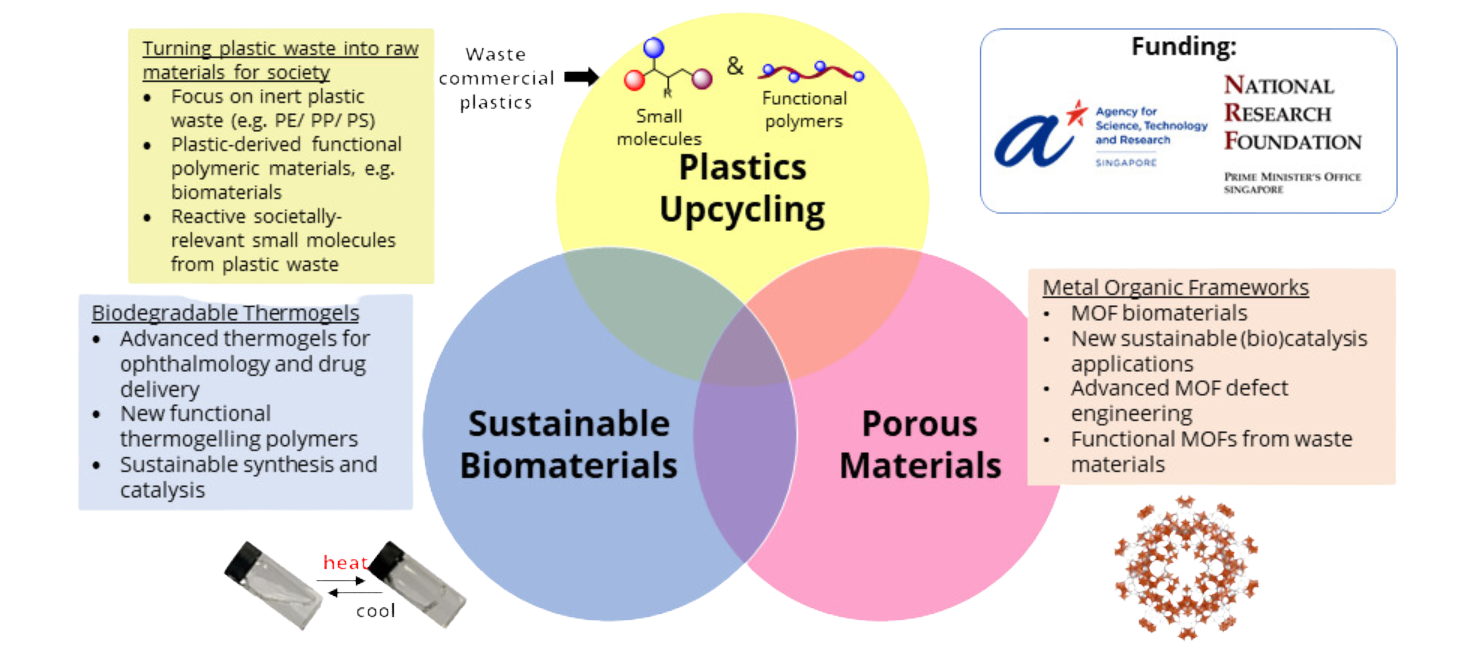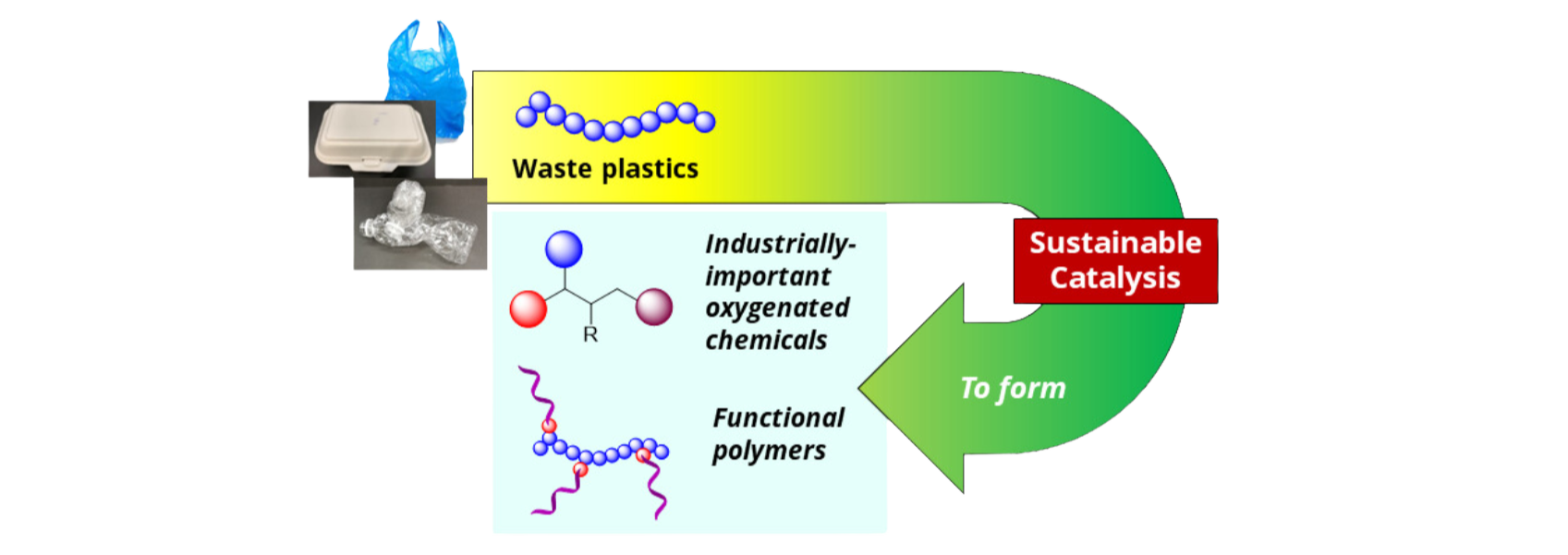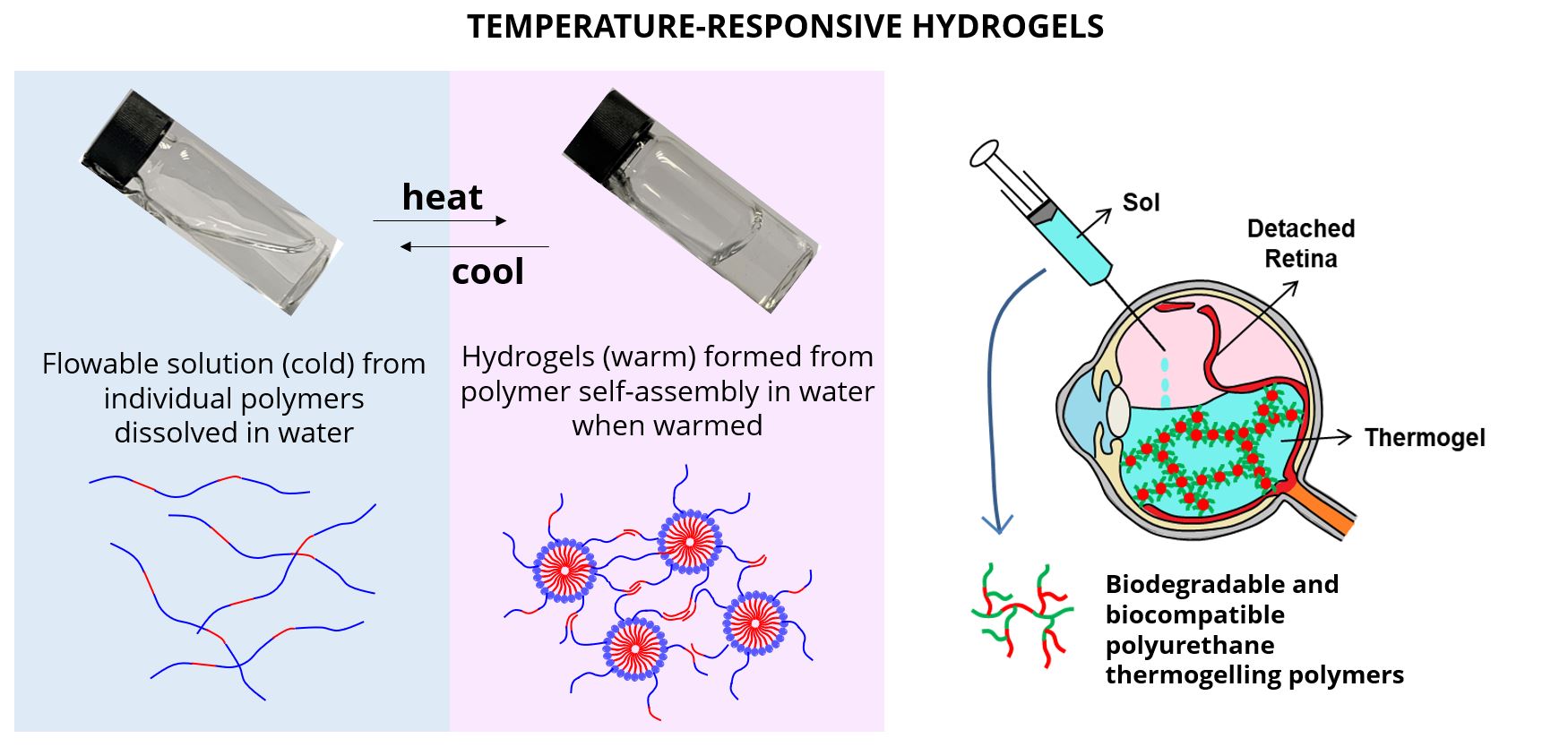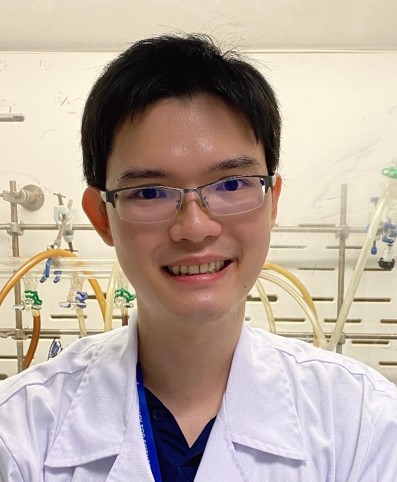Sustainable Supramolecular Materials
Our group aims to design the next generation of functional polymeric materials by understanding their interactions at a molecular scale, as well as producing them sustainably from societal waste.
Our research focuses on three related key thrusts:

- Plastics Upcycling: giving waste plastics new lease-of-life as functional small molecules and useful polymeric materials for society, reducing mankind’s reliance on fossil fuels for materials production.
- Sustainable Gel Materials: Biodegradable and sustainably-produced polymer gels with applications as biomaterials, therapeutic agents and energy storage.
- Green Porous Materials: metal organic frameworks (MOFs) and their polymer composites for biomedical applications, sustainable catalysis and waste valorisation.
Research Capability 1: Plastic Upcycling
More than 300 million tonnes of plastic waste are produced each year, and the vast majority are poorly biodegradable, and are disposed unsustainably by landfilling and incineration. More than 60 % comprises of polymers with inert C-C backbones, such as the polyolefins, polystyrene and poly(vinyl chloride) (PVC). Yet due to their optimal material properties, durability and low cost of production, replacing these existing plastics with new biodegradable ones are unfeasible for the foreseeable future. Here, we are interested in transforming these waste plastics into reactive small molecules (e.g. carboxylic acids) and functional polymers of value to society, by leveraging on our expertise in catalysis and polymer engineering. By turning plastic waste into resources for raw materials, we aim to reduce humanity’s reliance on fossil fuels, while concurrently lowering their carbon footprint resulting from waste plastic incineration.
Selected Publications
- Enhancing the photocatalytic upcycling of polystyrene to benzoic acid: a combined computational-experiment http:// al approach for acridinium catalyst design, Chemical Science, 2024 [in press]
- Organocatalytic Aerobic Oxidative Degradation of Polystyrene to Aromatic Acids, ACS Sustainable Chemistry & Engineering, 2023, 11, 12514
- Transforming Polyethylene into Water-Soluble Antifungal Polymers, Macromolecules, 2023, 56, 815
- Upcycling waste poly(ethylene terephthalate) into polymer electrolytes, Journal of Materials Chemistry A, 2022, 10, 24468
- Polyolefins and Polystyrene as Chemical Resources for a Sustainable Future: Challenges, Advances, and Prospects, ACS Materials Letters, 2021, 3, 1660-1676
Research Capability 2: Sustainable Gel Materials
Gels are 3D molecular networks that entrap a large quantity of water or organic solvents, and have many functional applications. In this area, we are primarily interested in:
- Temperature-responsive hydrogels (also known as thermogels) that self-assemble by non-covalent interactions between polymer molecules. These are useful for in-situ drug-delivery, tissue engineering and can have inherent therapeutic applications.
- Gel electrolyte materials for energy storage and supercapacitor applications.
New sustainable catalysts and synthetic methods for gel polymer production which avoid toxic heavy metals.
Selected Publications
- PEG-free pH-Responsive Thermogels Containing Amphiphilic Polycationic Polyethylenimine Copolymers, Macromolecules, 2023, 56, 9368
- Antiangiogenic nanomicelles for the topical delivery of aflibercept to treat retinal neovascular disease, Advanced Materials, 2022, 34, 2108360
- A bio-functional polymer that prevents retinal scarring through modulation of NRF2 signalling pathway, Nature Communications, 2022, 13, 2796
- High molecular weight hyper-branched PCL-based thermogelling vitreous endotamponades, Biomaterials, 2022, 280, 121262
- Zinc diethyldithiocarbamate as a catalyst for synthesising biomedically-relevant thermogelling polyurethanes, Materials Advances, 2020, 1, 3221-3232

Research Capability 3: Green Porous Materials
Metal organic frameworks (MOFs) are highly-designable porous materials. We are interested in developing new applications of MOFs in biomedical applications (e.g. innovative sustained drug delivery platforms that allow simultaneous drug release at different rates) and sustainability (e.g. green catalysis).
Additionally, we are interested in MOF defect engineering- a cost-effective and practical method to improve on the functionality of MOFs without having to synthesise complicated new organic linkers. Through introduction of missing linkers or metal nodes in MOF structures, we are able to alter the properties of MOFs, offering new possibilities in gas capture, catalysis, biomedical and sustainability applications.
Selected Publications
- MOF–Thermogel Composites for Differentiated and Sustained Dual Drug Delivery, ACS Biomaterials Science & Engineering, 2023, 9, 5724
- Biomedically-relevant metal organic framework-hydrogel composites, Biomaterials Science, 2023, 11, 2661
- UiO-66 metal organic frameworks with high contents of flexible adipic acid co-linkers, Chemical Communications, 2022, 58, 11402
- Materials from waste plastics for CO2 capture and utilisation, Green Chemistry, 2022, 24, 6086

About Group Leader
Dr Jason Y. C. Lim obtained his DPhil in Inorganic Chemistry (2017) from University of Oxford (U.K.) under the supervision of Prof. Paul D. Beer, and subsequently performed post-doctoral research with Prof. Charlotte K. Williams at the same institute. Other than being a group leader in IMRE, he also holds an Adjunct Assistant Professorship at the Department of Materials Science and Engineering, NUS.
Selected Highlights and Achievements
- NRF Fellow, Class of 2023
- World’s Top 2% Scientists in Organic Chemistry (Stanford-Elsevier), 2021 to present
- Career Development Award, 2021
- National Science Scholarship (PhD), 2013
Contact
A*STAR celebrates International Women's Day

From groundbreaking discoveries to cutting-edge research, our researchers are empowering the next generation of female science, technology, engineering and mathematics (STEM) leaders.
Get inspired by our #WomeninSTEM
.png?sfvrsn=b59474e9_3)